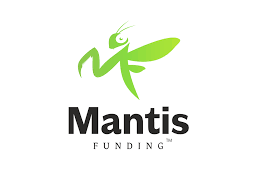Maximize Your Business Potential: Cash App for Business – Pros and Cons Explained
Mantis Funding June 26, 2023
Need Financing? No Problem!
What is Cash App?
Cash App is a mobile payment service and application that allows users in the US and UK to transfer money to each other using their mobile phones, tablets, or PCs. Cash App also lets users buy stocks and invest in Bitcoin all in one place. The app also provides businesses with solutions for accepting payments for transactions using Square, a full-service payment processing solution. Learn more about Cash App and its pros and cons for businesses below.
What Are Cash App Business Accounts?
Cash App business accounts, also known as Cash For Business, are a feature of the popular peer-to-peer payment platform. Cash For Business accounts are specifically for businesses and provide a convenient way to send and receive money.
One of the primary differences between a Cash App business account and a personal account is the types of transactions allowed. With a business account, you can receive payments from customers and clients and send payments to vendors and suppliers. This makes Cash For Business an ideal solution for small businesses, freelancers, and other self-employed individuals who need a streamlined way to manage their finances.
Cash App business accounts and personal accounts also process transactions at different speeds. While standard deposits can take one to three days to reach a bank account, business accounts can often receive payments instantly. This can be a huge advantage for businesses in helping them make timely payments to vendors and suppliers.
Looking for quick, easy small business funding? Mantis Funding can provide funding within 72 hours or less. Check out how our funding works today!
How Do Cash App Business Accounts Work?
Cash App’s business platform is user-friendly and allows them to receive payments from customers through a dedicated business account. Here are the basics of how Cash For Business accounts work:
Firstly, when you sign up for a Cash App business account, you will be given a unique “CashTag.” This CashTag should include your business or brand name because it will be your dedicated store URL (cash.me/yourtag). This unique URL makes it easy for customers to find and send payments to your business.
When customers send payments to your CashTag, the money is directly deposited into your business account. While Cash App deducts a processing fee of 2.75% from each payment you receive, there are no fees for instant deposits, which means you can access your funds as soon as they are received.

Secure Your Financing with Ease
Connect your bank account safely with Plaid. Experience seamless and secure access to Mantis Funding’s financing options. Our Apply Now application, powered by Plaid, is quick, secure, and hassle-free. Enjoy streamlined financing solutions tailored to your needs – that’s the Mantis Funding promise.
What to Know About Using Cash App Business Accounts
Cash App business accounts make it easy for businesses to accept payments with simple setup and management.
One advantage of using Cash App for Business is that non-Cash App users can still make payments to your business using your unique CashTag URL. This means that customers who do not have Cash App installed on their phones can still pay your business using their preferred method.
Another benefit is that Cash App for Business only charges a processing fee when customers make payments through the app, meaning if a customer pays you using a different payment method, such as a credit card, the business will not be charged any processing fees.
Pricing
While it is free to set up a Cash For Business account for your business, Cash App will charge you when customers pay you using the app. There is a 2.75% processing fee automatically deducted from each payment you receive. There are no fees for instant deposits.
Cash For Business accounts are responsible for customer chargebacks. Customer chargebacks can incur two types of fees: a fee for processing the chargeback and another fee for any mediation or investigation required on Cash App’s behalf to determine if the customer’s dispute is warranted and legitimate.
Pros and Cons
Cash App for Business has several advantages and disadvantages that are worth considering for your small business.
- Pros:
- Quick setup: Cash App for Business is easy to set up and get started with.
- No contract: There is no long-term contract required to use Cash App for Business.
- No fees for instant deposits: Cash App for Business does not charge any fees for instant deposits.
- Unlimited transactions: There is no limit to the number of transactions you can make with Cash App.
- Provides tax documents for you: Cash App for Business provides tax documents to help you keep track of your finances.
- Cons:
- Only supports debit and credit cards: Cash App only accepts payments through debit and credit cards.
- Transaction fees: Cash App business accounts charge transaction fees on some transactions.
- Does not accept high-risk businesses: Cash App does not accept high-risk businesses as customers.
Transaction Limits
While there are no transaction limits for verified Cash For Business accounts, there are spending and deposit limitations:
- You can only spend $7,500 daily.
- You can’t exceed $17,500 in a month.
Is a Cash App Business Account Right for My Business?
Deciding whether or not a Cash App business account is right for your business depends on several factors. One of the first things to consider is the type of transactions your business processes. Cash App is a popular choice for businesses that frequently engage in peer-to-peer transactions.
However, there are several alternatives to Cash App for businesses, including Venmo, PayPal, and more. These platforms offer similar services and may be better suited to your business needs depending on the specifics of your operations.
Venmo (owned by PayPal) has a user-friendly interface and primarily processes peer-to-peer transactions, similar to Cash App. Venmo charges business accounts a 1.9% fee plus 10 cents per transaction. However, Venmo waives the standard fees for customers who use the app to pay businesses, meaning it is free for customers to send them money.
Paypal, on the other hand, is a versatile payment platform popular for both peer-to-peer and commerce transactions. PayPal offers more features than Venmo and Cash App alongside higher transaction limits. However, PayPal’s transaction fees are typically higher, making it less viable for some smaller businesses.
Cash App offers a convenient and user-friendly platform for businesses to conduct transactions. Its focus on peer-to-peer transactions and competitive fees make it great for small businesses. However, it’s crucial to carefully consider the specific needs of your business and compare Cash App to other platforms, such as Venmo and PayPal, before making a decision.
Mantis Funding provides revenue-based funding to small businesses. Our team of professionals is ready to help your enterprise reach new heights with an easy application process and swift turnarounds on funding – we could get you your funding in less than 72 hours! Contact us today for more information.
Share on Social

About Mantis Funding
Mantis Funding is a business financing solutions company catering to small and mid-sized business owners in the United States.
Latest Blog Posts View All
Customer & Business Growth
April 03, 2025
Maximize Your Business Potential with Stripe for Small Business Solutions
Customer & Business Growth
April 02, 2025
How Sustainable Products Make Your Small Business More Eco-Friendly